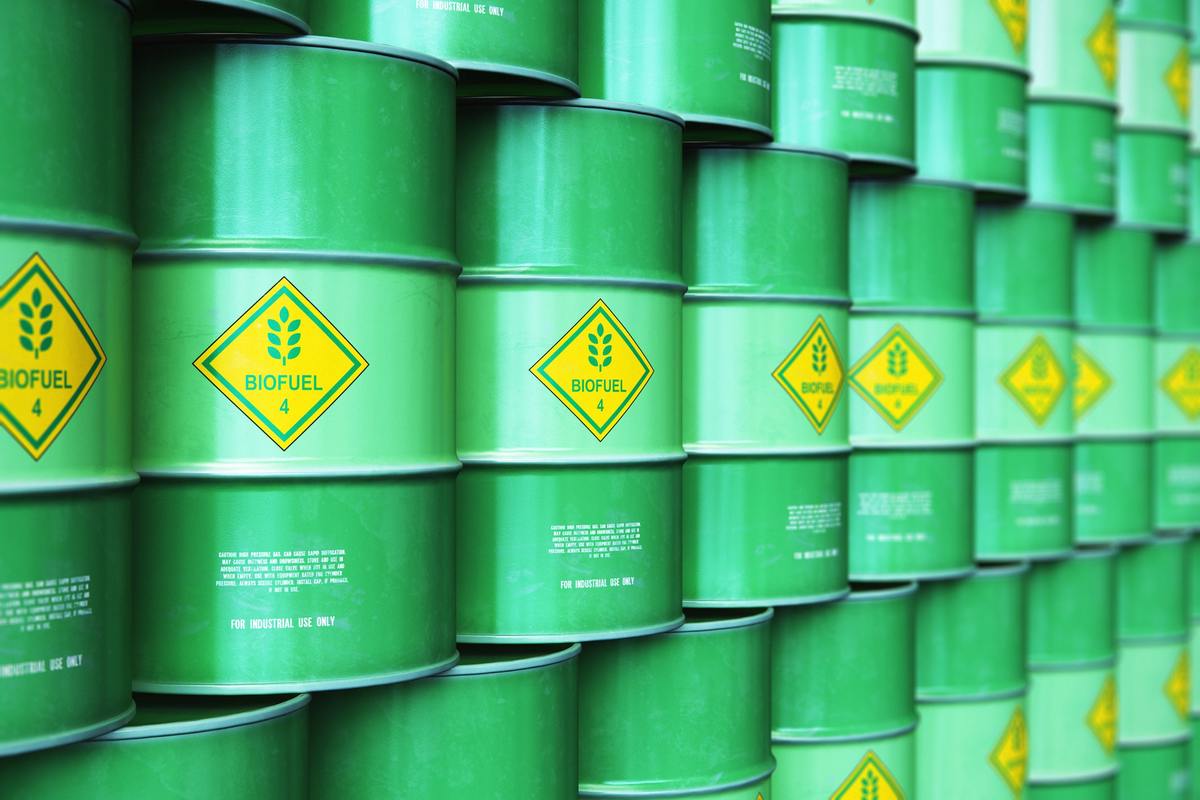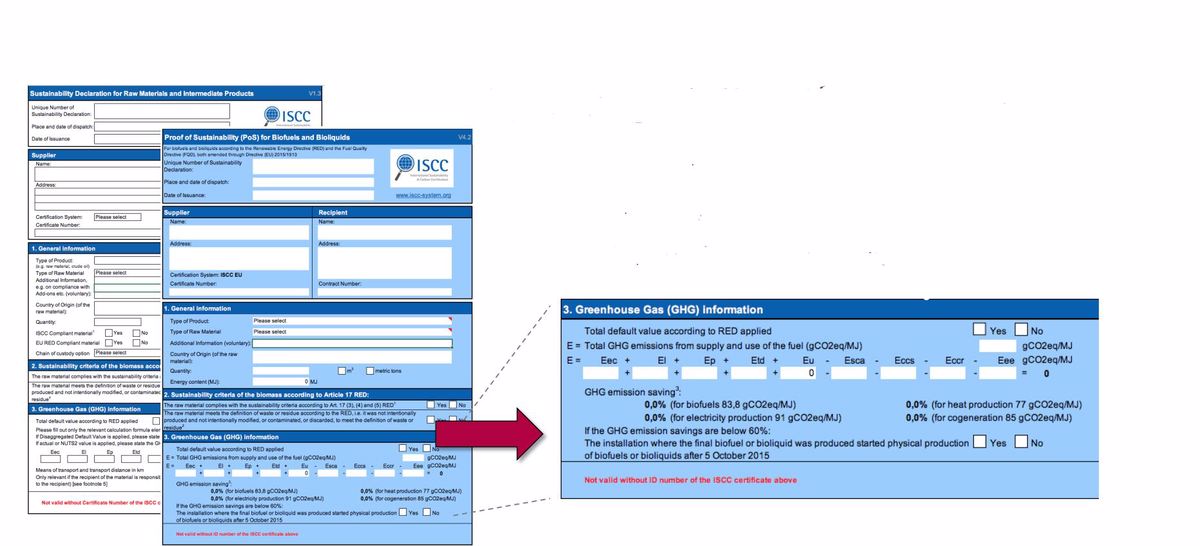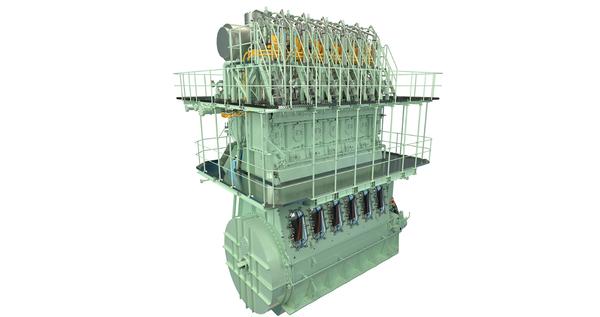Shipping moves towards transparency amid rise in alternative fuels – Integr8
The opacity and uncertainty that has plagued the maritime industry is no longer acceptable in an era of environmental responsibility, says Chris Turner, bunker quality and claims manager at Integr8 Fuels.
 PHOTO: Stacks of biofuel barrels. Getty Images
PHOTO: Stacks of biofuel barrels. Getty Images
The shipping sector has come under increased scrutiny for its environmental impact and lack of transparency in recent years. But it may “finally shift from the opacity (and endemic mistrust) of the past to a more professional, transparent and traceable future,” Turner writes in a recent bunker fuel quality report.
Ice cream analogy
Shipowners are turning to alternative fuels with significantly lower emissions than fossil fuels to trim the greenhouse gas (GHG) emissions from their vessels.
“Using ice cream as an example, we have gone from the days of vanilla trades (HSFO) through to a multitude of flavours and toppings post IMO 2020 with all the different make ups of VLSFO, and now (for our Singapore readers), we are about to throw in a durian sorbet or two with the incoming spectrum of alternative fuels,” Turner says.
As technology advances, more ships are expected to run on fuels with zero-emission potential, like ammonia or methanol. But so far, liquid biofuels and liquefied natural gas (LNG) have been the most technologically ready alternatives to conventional fuels. Their price tags are also much lower than the green versions of hydrogen, methanol and ammonia.
Encouraging a responsible culture
As conventional ship engines don't require any modifications to run on biofuels, these fuels have an edge over LNG, which requires specialised engines. For biofuel suppliers, however, this market power comes with great responsibility to be sustainable.
With shipping's inclusion in the EU’s Emissions Trading System (EU ETS) from next year, and FuelEU Maritime from 2025, shipowners will now have to report verified emissions to, from and between EU ports. Turner explains that alternative fuel suppliers must show that the bio-components in their fuels are sustainable and provide proof of that to their customers.
“If this is not possible then the alternative fuels, which are generally bought at premiums to conventional fuels, would not be counted in any emissions saving, counting the same as mineral fuels,” he says.
As a result, alternative bunker fuel buyers – especially biofuel consumers – will have to pay close attention to the feedstocks and well-to-wake emissions associated with these fuels. This is likely to compel suppliers to maintain transparency and traceability through their product supply chains.
“Of course, not all suppliers will embrace alternative fuels or mandatory mass flow meters (as recently announced in Rotterdam, Antwerp and Brugge ports),” Turner argues, “but those who do will quickly realise their tried and tested practices will be challenged by the end users who will demand they demonstrate and certify sustainability.”
Navigating towards transparency
Documentation will be paramount in the evolving alternative fuels regime, he asserts.
 PHOTO: ISCC templates for a Sustainability Declaration (left) and a Proof of Sustainability (PoS, right). ISCC
PHOTO: ISCC templates for a Sustainability Declaration (left) and a Proof of Sustainability (PoS, right). ISCC
Bunker Delivery Notes (BDNs) issued by marine fuel suppliers must include information on the type of alternative fuel product and grade. For biofuels, bunker suppliers and operators will have to provide a Proof of Sustainability (PoS) or similar documentation to verify the sustainability of feedstock and energy inputs. The International Sustainability and Carbon Certification (ISCC) is globally recognised as an approved sustainable certificate.
ISCC is a global certification system that sets standards for sustainable production, sourcing and trade of all kinds of bio-based feedstocks and biofuels. It gives a PoS throughout the whole supply chain to evaluate the sourcing of raw materials, supply chain management, land use, greenhouse gas (GHG) emissions and social aspects of a company’s activities.
The “changing of the guard” will also require training for all stakeholders "from barge deck hand to buyer, and beyond" to avoid ambiguity on the BDN for the verifier, according to Turner. Unlike the IMO's 2020 sulphur cap regulation which was an overnight shift, the gradual shift to alternative fuels will give suppliers time to realign their efforts to meet new industry transparency and sustainability standards.
By Konica Bhatt
Please get in touch with comments or additional info to news@engine.online






